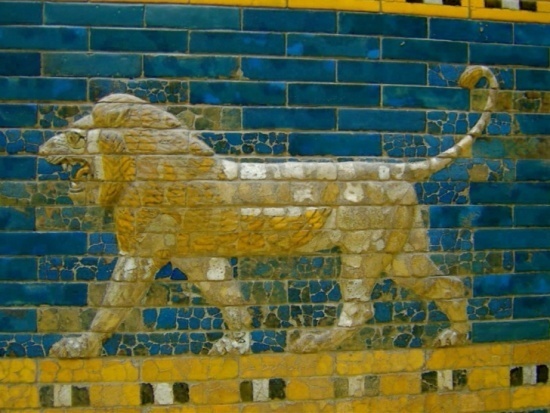"Bring Back Some of the People of Israel" -- Daniel 1:1-7
 Wednesday, March 22, 2017 at 10:00AM
Wednesday, March 22, 2017 at 10:00AM 
The First in a Series of Sermons on the Book of Daniel
We know that Daniel was young man of noble Hebrew descent living in Judah in 605 B.C. That was the year when, in the providence of God, King Nebuchadnezzar sent his armies to lay siege to Jerusalem–only to destroy the city and its temple eighteen years later in 587 BC. Along with a number of Jewish youths, Daniel was taken from his home and family in Judah, and exiled to Babylon, where he lived out the balance of his long life as a believer in YHWH in the capital city of a pagan empire. Although an exile far from home, Daniel rose to such prominence in the Babylonian royal court that eventually he became a confidant of Nebuchanzezzar himself. Little did Daniel know that the terrible day when he was taken captive and removed from his home and family was just the beginning of a amazing life–a life which, through a series of dreams and visions given him by God, led to the production of a book of the Bible which reveals some of the profound mysteries of God’s sovereign plan for human history, by taking us on a panoramic sweep from Israel’s patriarchs (Abraham, Isaac, and Jacob) to the coming messianic age, all the way to the end of time and day of final judgment. The Book of Daniel is also the story of a faithful Jewish exile, in a pagan land, serving in a pagan royal court, all the while living his life in such an exemplary way that he may indeed have been used by God during the reign of the Persian king Cyrus (in the 530s) to help secure the freedom of those Jewish exiles who returned to Jerusalem (in a second Exodus) as recounted in the books of Ezra and Nehemiah. The Book of Daniel is not only an important guide to redemptive history, it is also the remarkable story of a faithful life lived in exile.
We begin this series on the Book of Daniel with a word of caution. One of the most capable commentators on the Book of Daniel warns us that this book has often defeated even the most skilled of expositors–a warning not to be taken lightly. One reason why Daniel is difficult to interpret is that Daniel predicts the course of world empires–although still future to him, are ancient history for us. To interpret Daniel correctly one needs a fair bit of knowledge of ancient near-eastern history, which most moderns simply do not have. Covering this ground is hard to do in the context of the typical sermon–and frankly, a sermon should not be a mere history lesson. Yet as we saw in our series on Ezra-Nehemiah, the situation on the ground, so to speak, far too often gets left behind by those interpreters looking for “practical application,” and who instead focus upon things like Nehemiah’s leadership skills, while ignoring the historical circumstances behind the book, circumstances which are far more interesting and relevant than turning Nehemiah into an ancient motivational speaker or strategic business plan expert.
We did not do that in our study of Ezra-Nehemiah and we cannot do that with Daniel if we expect to understand the true meaning of his prophecy and get something truly useful from our time spent studying this book. So, any series on Daniel will be challenging because even though Daniel will offer a panoramic vision from Israel’s past to the end of time, much of his prophecy has to do with the great empires of the ancient near east (Babylonian, Persian, Greek, Roman) from 600 B.C. until the coming of Jesus and the dawn of his messianic mission (30 AD). So, we will proceed slowly at the beginning of our series, lay the necessary historical groundwork, but we will pick-up speed as we go along.
To read the rest of this sermon: Click Here



Reader Comments